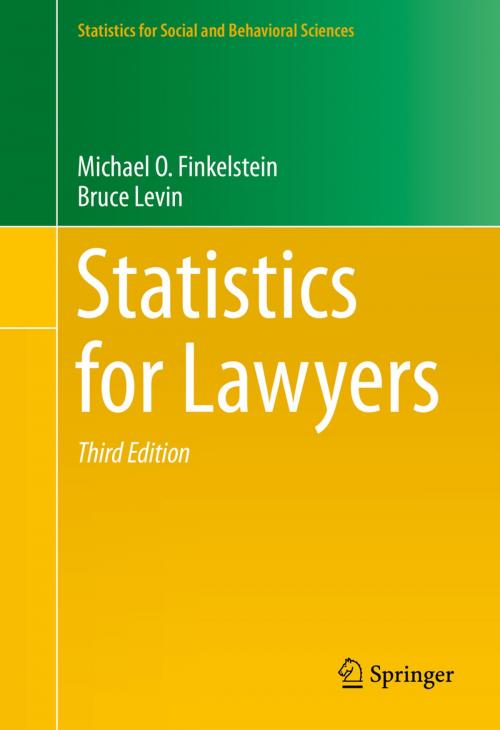Statistics for Lawyers
Nonfiction, Social & Cultural Studies, Social Science, Statistics, Reference & Language, Law| Author: | Michael O. Finkelstein, Bruce Levin | ISBN: | 9781441959850 |
| Publisher: | Springer New York | Publication: | December 16, 2015 |
| Imprint: | Springer | Language: | English |
| Author: | Michael O. Finkelstein, Bruce Levin |
| ISBN: | 9781441959850 |
| Publisher: | Springer New York |
| Publication: | December 16, 2015 |
| Imprint: | Springer |
| Language: | English |
This classic text, first published in 1990, is designed to introduce law students, law teachers, practitioners, and judges to the basic ideas of mathematical probability and statistics as they have been applied in the law. The third edition includes over twenty new sections, including the addition of timely topics, like New York City police stops, exonerations in death-sentence cases, projecting airline costs, and new material on various statistical techniques such as the randomized response survey technique, rare-events meta-analysis, competing risks, and negative binomial regression. The book consists of sections of exposition followed by real-world cases and case studies in which statistical data have played a role. The reader is asked to apply the theory to the facts, to calculate results (a hand calculator is sufficient), and to explore legal issues raised by quantitative findings. The authors' calculations and comments are given in the back of the book. As with previous editions, the cases and case studies reflect a broad variety of legal subjects, including antidiscrimination, mass torts, taxation, school finance, identification evidence, preventive detention, handwriting disputes, voting, environmental protection, antitrust, sampling for insurance audits, and the death penalty. A chapter on epidemiology was added in the second edition. In 1991, the first edition was selected by the University of Michigan Law Review as one of the important law books of the year.
This classic text, first published in 1990, is designed to introduce law students, law teachers, practitioners, and judges to the basic ideas of mathematical probability and statistics as they have been applied in the law. The third edition includes over twenty new sections, including the addition of timely topics, like New York City police stops, exonerations in death-sentence cases, projecting airline costs, and new material on various statistical techniques such as the randomized response survey technique, rare-events meta-analysis, competing risks, and negative binomial regression. The book consists of sections of exposition followed by real-world cases and case studies in which statistical data have played a role. The reader is asked to apply the theory to the facts, to calculate results (a hand calculator is sufficient), and to explore legal issues raised by quantitative findings. The authors' calculations and comments are given in the back of the book. As with previous editions, the cases and case studies reflect a broad variety of legal subjects, including antidiscrimination, mass torts, taxation, school finance, identification evidence, preventive detention, handwriting disputes, voting, environmental protection, antitrust, sampling for insurance audits, and the death penalty. A chapter on epidemiology was added in the second edition. In 1991, the first edition was selected by the University of Michigan Law Review as one of the important law books of the year.















